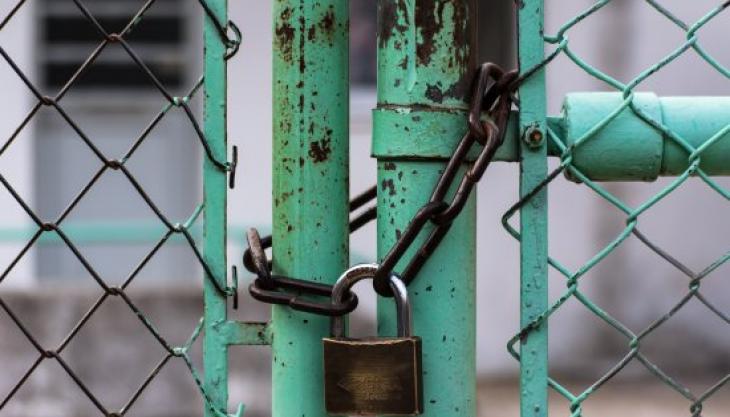Secured vs Unsecured Debt in Wilmington Bankruptcy
Submitted by Rachel R on Fri, 12/15/2017 - 9:13am

Is your debt secured or unsecured?
Image by Jason Blackeye via Unsplash
When Wilmington consumers need help with debt, bankruptcy may be the best solution for a fresh financial start. There are two different bankruptcy chapters available – Chapter 7 and Chapter 13 – and what type of debt you’re struggling with is a good starting point to consider which might be best for you. The two types of debt are secured and unsecured, and each is treated differently under the two bankruptcy chapters. Here’s a look at what secured and unsecured debt are and what relief you can expect coming out of bankruptcy.
What is secured debt?
Secured debts are linked to some property that you own. The loan is “secured” by a lien on the asset. This lien and security in collateral protect the lender’s investment while you get to enjoy using the property. The most common consumer secured debts are mortgages and auto loans. If you don’t make the payments on your loan, the lender can repossess the vehicle or foreclose on the home.
If you’re behind on secured debt and want to keep the asset, Chapter 13 is probably better for you than Chapter 7. You cannot keep secured debt in Chapter 7 if you’re behind on payments. You would have to surrender the property back to the lender. With Chapter 13, in contrast, your Wilmington bankruptcy puts you on a repayment plan to catch up on the past-due amount and keep your asset.
Under North Carolina bankruptcy law, there are two types of secured debt – with consent and without consent. The former is the standard secured debt where you borrow to purchase an asset and accept the lien as part of the financing agreement. The latter is debt attached to an asset without your consent. Wilmington bankruptcy deals with these differently.
Secured debt with your consent
These are the debts that you signed up for, and you know going into it that there’s a lien on your asset. These include mortgages and home equity lines of credit, auto loans, retail purchases with a lien on the asset (like furniture or a large appliance), and personal loans where you pledged an asset as collateral.
Nonconsensual liens
This secured debt results from a lien on your property without your consent and are called non-consensual liens. These can come in the form of a judgment that results in a lien, a lien credited by law such as by your HOA or a mechanic, or a tax or child support lien. These liens convert unsecured debt like unpaid taxes into a secured debt in the form of a lien on your asset.
What is unsecured debt?
Unsecured debt means there is no asset attached to protect the lender or creditor in case you default. The most common unsecured debt is credit card debt and medical bills. Rent and utilities fall into this category as do professional fees such as if you owe money to your lawyer. Personal loans made to you without collateral are also unsecured debt. Student loans are a special category to discuss with your lawyer.
How secured and unsecured debt are treated in Wilmington bankruptcy
With Chapter 7 bankruptcy, unsecured debt can usually be 100% discharged for credit cards, medical bills, personal loans, old utilities, and older income taxes (if you meet the requirements). Secured debt is not dischargeable in Chapter 7. You must either give back the asset or catch up on payments with Chapter 7 bankruptcy.
If you choose Chapter 13 for your Wilmington bankruptcy, you can buy time to catch up on secured debt, and you should see significant relief on unsecured debt, but not as sweeping as with Chapter 7. When it comes to non-consensual liens, those are more challenging. Bankruptcy can wipe out the debt that triggered the lien, but the lien itself can remain standing.
If you have liens, this complicates your bankruptcy case and should be one of the first things you tell your North Carolina bankruptcy attorney at your initial consultation. Your blend of secured versus unsecured debt, whether you’re delinquent on your mortgage or auto, your income, and future financial goals are all part of choosing Chapter 13 versus Chapter 7 bankruptcy.
To find out more about the benefits of bankruptcy, contact the Law Offices of John T. Orcutt. Be sure to read reviews from our satisfied clients then call +1-833-627-0115 now for a free Wilmington bankruptcy consultation at one of our convenient locations in Raleigh, Durham, Fayetteville, Wilson, Greensboro or Wilmington. Don’t live in debt, get the fresh financial start you deserve!
Debts Hurt! Got debt? Need help? Get started below!
Serving All of North Carolina
- Bankruptcy Attorneys Raleigh NC (North)
- Bankruptcy Attorney Fayetteville NC
- Bankruptcy Attorney Durham NC
- Bankruptcy Attorneys Wilson NC
- Bankruptcy Attorneys Greensboro NC
- Bankruptcy Attorneys Southport NC
- Bankruptcy Attorneys Wilmington NC
Bankruptcy Attorneys Raleigh NC (North)
6616 Six Forks Rd #203 Raleigh, NC 27615 North Carolina
Tel: (919) 847-9750

Bankruptcy Attorney Fayetteville NC
2711 Breezewood Ave Fayetteville, NC 28303 North Carolina
Tel: (910) 323-2972

Bankruptcy Attorney Durham NC
1738 Hillandale Rd Suite D Durham, NC 27705 North Carolina
Tel: (919) 286-1695


Bankruptcy Attorneys Greensboro NC
2100 W Cornwallis Dr. STE O Greensboro, NC 27408 North Carolina
Tel: (336) 542-5993

Bankruptcy Attorneys Southport NC
116 N Howe St. Suite A Southport, NC 28461 North Carolina
Tel: (910) 218-8682

Bankruptcy Attorneys Wilmington NC
116 N. Howe Street, Suite A Southport, NC 28461 North Carolina
Tel: (910) 447-2987
